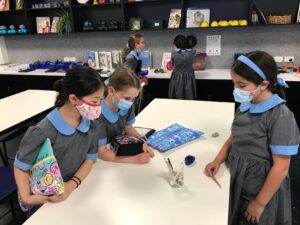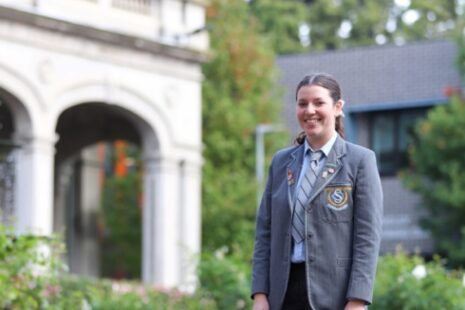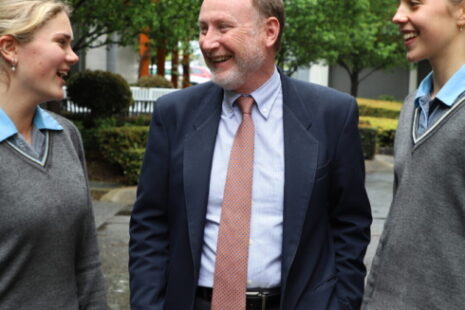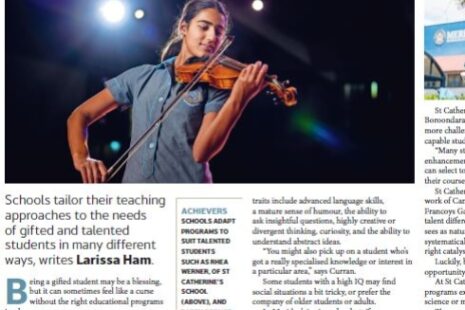Sophisticated Science in Junior School

During the first weeks of the academic year, I have been spending quite a bit of time in Barbreck working with our wonderful Junior School teachers.
A couple of days ago I had the unbridled pleasure of sitting in on a Year 3 STEM class led by the teacher responsible for this important area of studies, Ms Tori Shaw. What I observed was an example of our students being totally absorbed in a challenging field of inquiry. The tone of the class became apparent as soon as the first student walked into the room. Brimming with excitement and enthusiasm, one girl said, “are we doing an experiment today Ms Shaw?” It was obvious how keen she and the other girls were about diving into a challenging lesson.
You would be forgiven for thinking that at Year 3 the Science being studied would be at a very simple or basic level. However, nothing could be further from the truth. Ms Shaw set a challenge for the girls to investigate the energy absorption characteristics of various materials. The girls set about forming a hypothesis, like all good scientists do, and then conducting an experiment using scientific methodology.
In small collaborative groups, the girls had to determine an aim for the experiment, and predict what they think might happen, along with a justification for their thinking. Next on their list was a period of time examining the variables which might affect the experiment and final results. They pondered questions such as: which variables they need to change, what would they measure, and what variables would they not change, in other words setting up a control. This thinking was then followed by clarifying their method of investigation, the equipment required, how they would record results – including producing graphs of their data. Finally, after the experiment was completed, they had to write a discussion of their results followed by a conclusion. This is pretty much the same process you might find in a lab being used by PhD students!
As the lesson progressed, the girls were focussed intently on their task. Ms Shaw moved around the room offering tips and advice on how the girls could perform the experiment, so the results were reliable and valid. Often, her input was in the form of a question:
- “Why are you doing this part of the experiment that way?”
- Are your results valid?
- What makes you say that?
- Is your thinking accurate and precise?
- Can you trust your results? Why?
What I found most interesting was the class conversation afterwards. Ms Shaw led the girls in a reflective process where they had to examine what they did during the experiment and think about how the experiment might be improved. This was followed by discussing their learnings and sharing what science they have learned. It was a real scientific dissection of the processes, procedures and interpretation of the data. This was not a Science class where the teacher stood at the front and delivered scientific information. Instead, the girls were set an intellectual challenge which they had to resolve.
The emphasis on STEM in Barbreck has not only been enhanced by our specialist teacher Ms Shaw, but also our Barbreck students have classes with our Senior School staff as well. The Head of the Science Faculty in the Senior School, Ms Vanessa Jackson-McRae, who also happens to be an outstanding Chemistry teacher, takes Year 6 girls for extension Science in the Senior School laboratories.
The Year 3 girls I saw this week in the STEM class will finish Year 12 in 2031. There is no doubt the scientific understanding required by our graduates in 2031 will need to be sophisticated and embracing of the technology of that time. It is hard to imagine what the world might look like. Underpinning it all must be a sound science background, so our students leave with deep knowledge and confidence. The class led by Ms Shaw is one of the vital components of a comprehensive and robust education we continue to strive for every day in every class.






